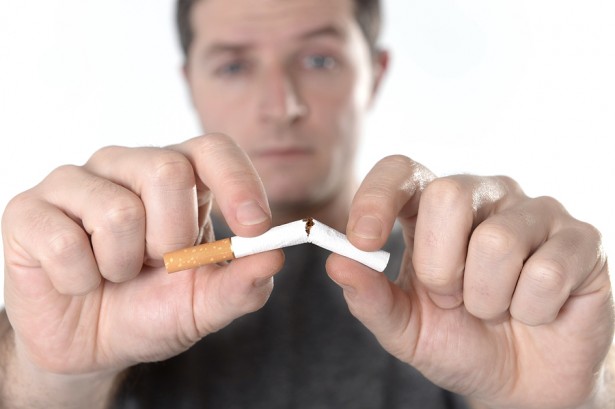A fewer percentage of Americans are smoking cigarettes than ever before. Decades ago, it was difficult not to come across someone who didn’t smoke. Nowadays, it’s quite hard to come into contact with an individual who actually does partake in the smoking habit.
Figures released by the Centers for Disease Control and Prevention (CDC) on Thursday highlight that the rate of cigarette smoking has fallen from 21 percent a decade ago to 18 percent last year. Even with the increasing domestic population, the number of cigarette consumers declined from 45.1 million to 42.1 million.
In addition, those who persist in smoking daily are cutting back on the habit as U.S. smokers lit up an average of 14.2 cigarettes each day last year, down from 16.7 in 2005. The U.S. Midwest has the greatest adult cigarette smoking rate, while the West maintains the lowest. Also, gays, lesbians and bisexuals smoke roughly 50 percent more than heterosexual individuals.

Others who are likelier to smoke include those who are impoverished, uneducated and disabled.
What can be attributed to this success? CDC researchers cite improved access to medications and programs that assist in quitting smoking.
The descending trend is being celebrated, but health officials still say there is a long way to go to slash cigarette smoking as more than “5.5 million kids who are alive today will die prematurely from tobacco-related disease,” says Dr. Tim McAfee, director of the CDC’s Office on Smoking and Health.
Nevertheless, tobacco still remains the No. 1 cause of preventable death in the U.S. as it generates close to half a million premature deaths every year.
“While it is good news that smoking continues to decline, it is disappointing and unacceptable that we’re not making greater progress in reducing smoking, the number one cause of preventable death,” said Susan Liss, executive director of the Campaign for Tobacco-Free Kids, in an interview with the Washington Times.
Liss noted that she is troubled by the fact that numerous states have reduced lauded strategies, such as higher tobacco taxes, smoke-free laws, urging people to quit and preventing tobacco use in the first place.



